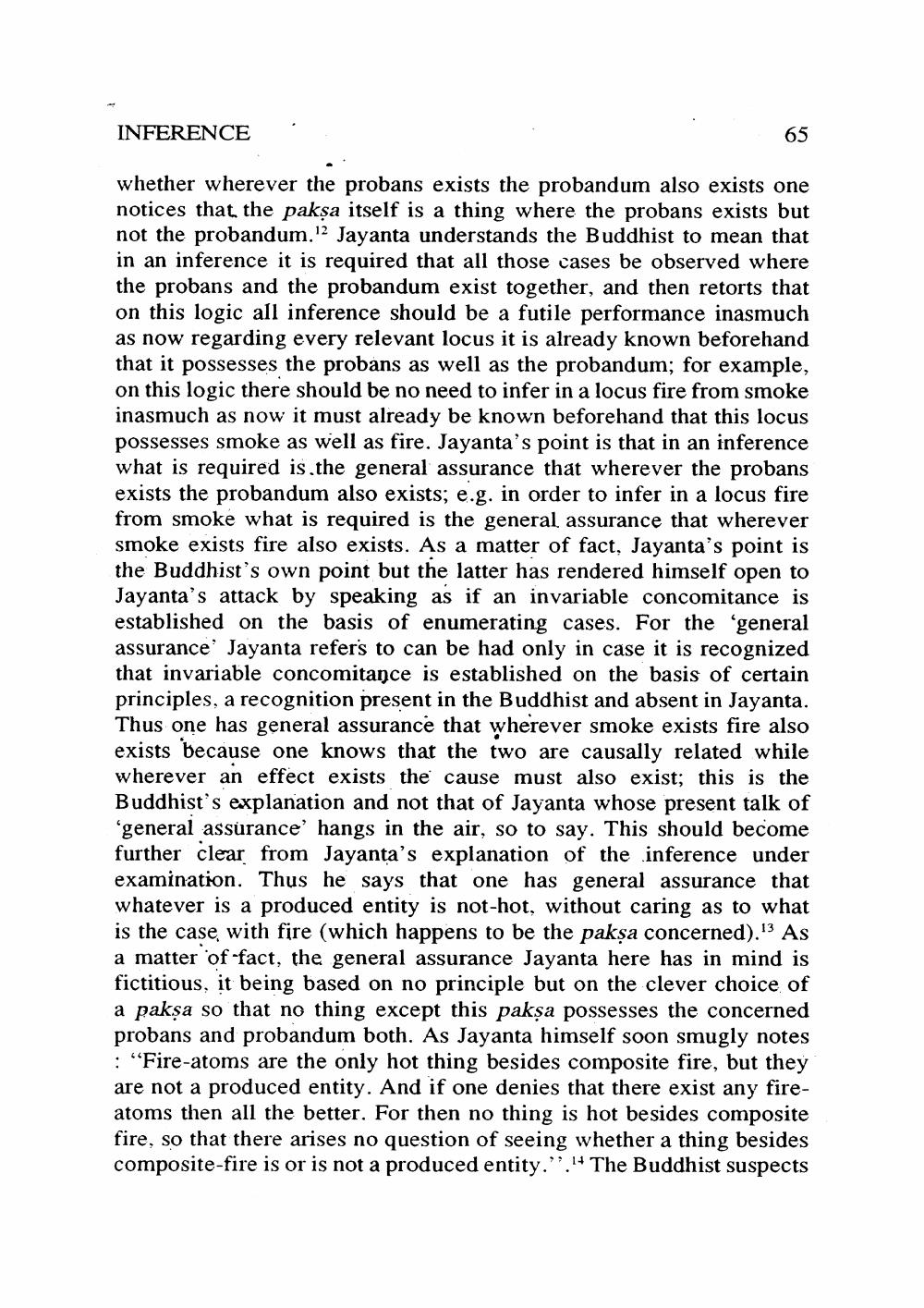________________
INFERENCE
65
whether wherever the probans exists the probandum also exists one notices that the paksa itself is a thing where the probans exists but not the probandum.2 Jayanta understands the Buddhist to mean that in an inference it is required that all those cases be observed where the probans and the probandum exist together, and then retorts that on this logic all inference should be a futile performance inasmuch as now regarding every relevant locus it is already known beforehand that it possesses the probans as well as the probandum; for example, on this logic there should be no need to infer in a locus fire from smoke inasmuch as now it must already be known beforehand that this locus possesses smoke as well as fire. Jayanta's point is that in an inference what is required is the general assurance that wherever the probans exists the probandum also exists; e.g. in order to infer in a locus fire from smoke what is required is the general, assurance that wherever smoke exists fire also exists. As a matter of fact, Jayanta's point is the Buddhist's own point but the latter has rendered himself open to Jayanta's attack by speaking as if an invariable concomitance is established on the basis of enumerating cases. For the general assurance' Jayanta refers to can be had only in case it is recognized that invariable concomitance is established on the basis of certain principles, a recognition present in the Buddhist and absent in Jayanta. Thus one has general assurance that wherever smoke exists fire also exists because one knows that the two are causally related while wherever an effect exists the cause must also exist; this is the Buddhist's explanation and not that of Jayanta whose present talk of 'general assurance hangs in the air, so to say. This should become further clear from Jayanta's explanation of the inference under examination. Thus he says that one has general assurance that whatever is a produced entity is not-hot, without caring as to what is the case with fire (which happens to be the paksa concerned).'3 As a matter of fact, the general assurance Jayanta here has in mind is fictitious, it being based on no principle but on the clever choice of a paksa so that no thing except this paksa possesses the concerned probans and probandum both. As Jayanta himself soon smugly notes : “Fire-atoms are the only hot thing besides composite fire, but they are not a produced entity. And if one denies that there exist any fireatoms then all the better. For then no thing is hot besides composite fire, so that there arises no question of seeing whether a thing besides composite-fire is or is not a produced entity.". 14 The Buddhist suspects




